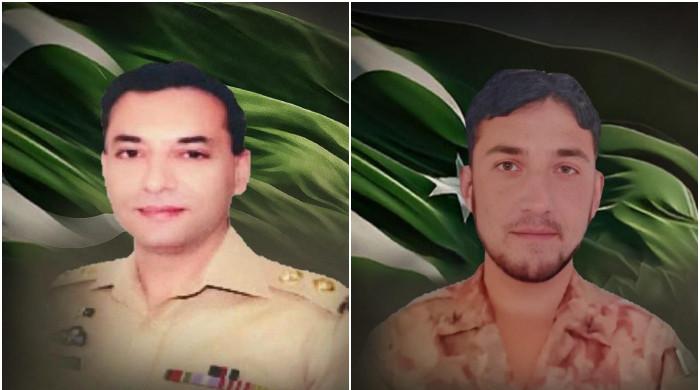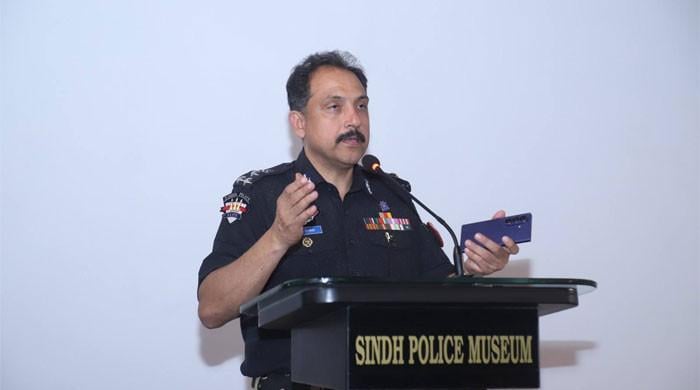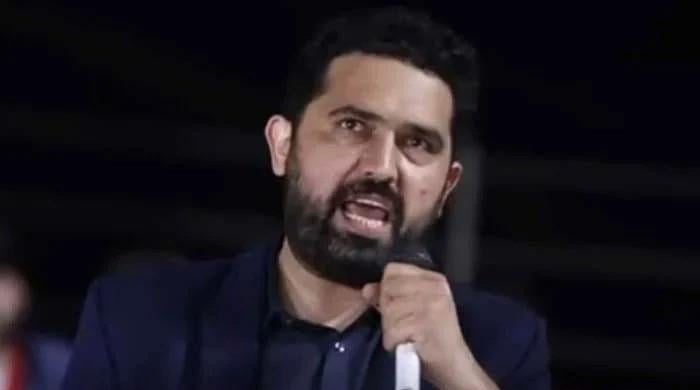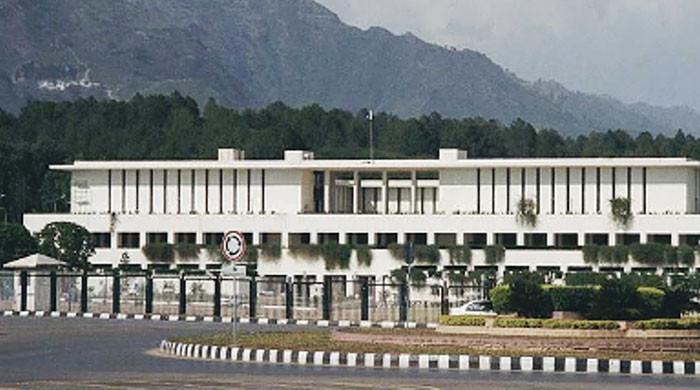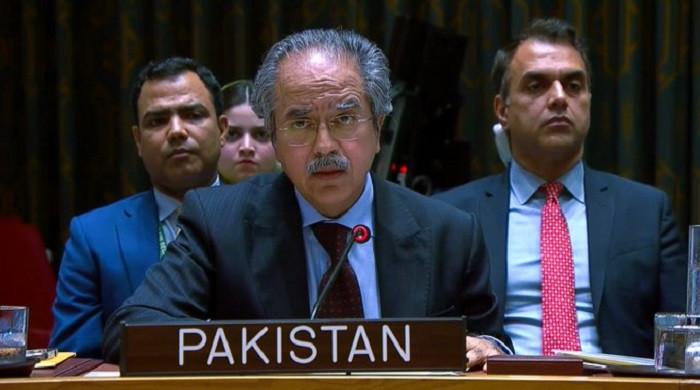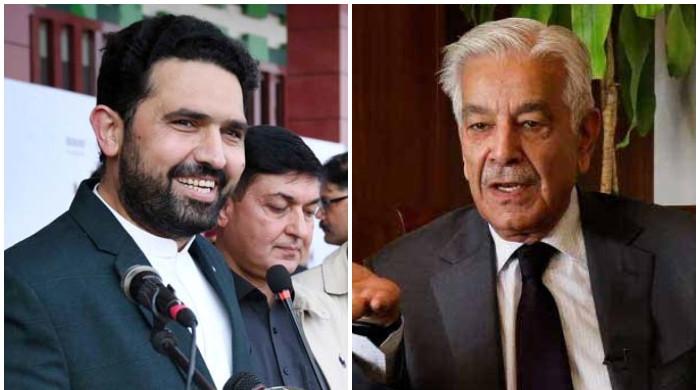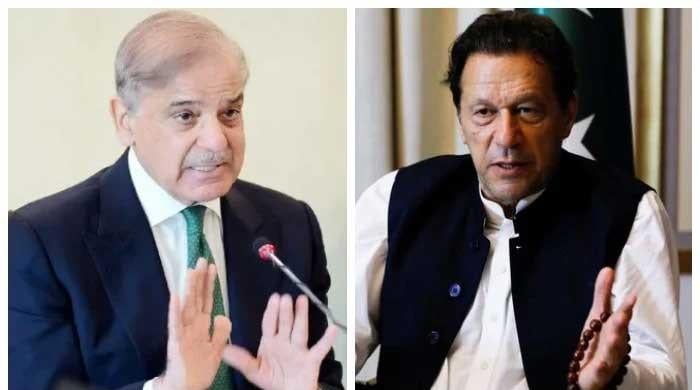Parliament’s space ‘strangulated’ after May 9 events: Farhatullah Babar
Former senator Mustafa Nawaz Khokhar highlights the need to introduce “Recall of Representative” clause
October 30, 2023
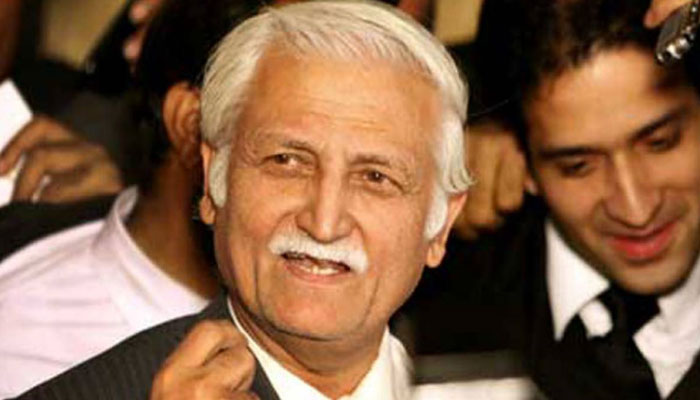
- PPP leader says level playing field should be ensured.
- “Making Parliament Relevant” organised by PIDE.
- Khokhar says upcoming parliament to be “hostage”.
ISLAMABAD: Pakistan Peoples Party (PPP) leader Farhtaullah Babar has said that parliament’s domain was “strangulated” following violent protests that took place on May 9, The News reported on Monday.
“The space of parliament has been strangulated after the May 9 episode and now there is a need to hold free and fair elections where a level playing field should be provided to all political parties,” the PPP leader remarked.
He expressed these views while addressing a session on “Making Parliament Relevant” in Econ-Fest organised by the Pakistan Institute of Development Economist (PIDE) in collaboration with other partners at the Pak-China Center on Sunday.
Babar said that parliament became relevant when it enacted the 1973 Constitution and 18th Amendments and it was the phase when the non-democratic forces had weakened. Parliament, he said, enhanced its space. However, it became irrelevant when it passed laws in bulk before the completion of its tenure under the PDM-led tenure.
Other political leaders and experts also demanded free and fair elections and parliamentary reforms, including recalling representatives who lost confidence in their constituents, to strengthen the legislature and make it relevant.
Mustafa Nawaz Khokhar, a former parliamentarian who had resigned from PPP, said on the occasion that the last parliament was “selected” and he could predict that the upcoming parliament would be “hostage”.
He suggested reforms within parliament, including "Recall of Representatives" after elections in case of scandal or other issue after 10% of voters belonging to the constituency demonstrated no confidence in the elected representative. It should be the right of the electorates of the constituency.
Secondly, he said that there should be a "Register of Interest" in the parliament whereby each and every elected member should be barred from participating in any discussion having a conflict of interest in case of any aspect of the relevant issue.
Khokhar also said that there were the articles of the Constitution, from 8 to 28, which were related to basic fundamental rights and the judiciary was supposed to protect the basic human rights enshrined in our 1973 Constitution.
He said the independent judiciary was a myth because it had failed to protect the basic fundamental rights of citizens.
Ahmed Bilal Mehboob, a civil society representative, said that parliament was relevant but would have to ensure transparency to restore the confidence of the masses.
He cited examples and said that they tried to get information about how many members had attended the parliamentary proceedings but it was declared as privileged information that could not be shared with anyone.
In another session on Contesting Poverty, Surjit Bhalla, a visiting Indian economist and writer, said that the poverty line for every country should be determined separately as it was just a reference point, not a political point.
He said that the calorie intake formula for calculating the poverty line was changed because it was a flawed method. He cited an example that one of the surveys found that 83% of women in the USA were malnourished, which the World Bank had refused to publish. The poverty, he said, has become a business. He suggested introducing a low quintile of income as a basis to ascertain levels of poverty.
There was a need to show the evidence to prove any point. He said that there should be no poverty of ideas. Inclusive growth on a sustained basis could help dent the poverty. Vice Chancellor PIDE Dr Nadeem Ul Haq said that higher and sustained growth could provide the way forward.




